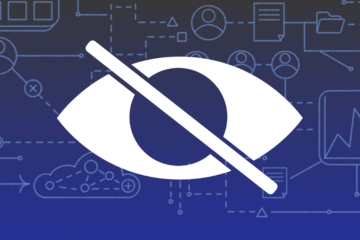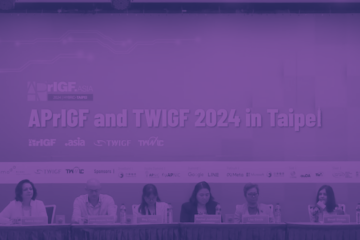May 1-15, 2021
The Digital Rights Roundup, published by the Foundation for Media Alternatives, contains regular updates on what Filipinos need to know about their digital rights.
345,000 sensitive legal documents from the Philippines government have been exposed online
A total of 345,000 confidential Philippine court records were made publicly available online. TurgenSec, a security firm based in the United Kingdom, discovered the data breach. The documents had been deleted as of April 28, according to the company, but some were still cached by Google. Read more here.
DICT rescinds deal with Aussie contractor, says it will deploy free Wi-Fi on its own
The Department of Information and Communications Technology (DICT) has announced that it is canceling a deal with a contractor for its “Free Wi-Fi for All Program.” According to the DICT, it has already requested that the UNDP return the funds given to SpeedCast so that the department can use them to help with the program’s implementation. Read more here.
Gov’t unveils AI roadmap, puts up National Center for AI Research
The Department of Trade and Industry (DTI) unveiled the national artificial intelligence (AI) roadmap on Wednesday, May 5, making the Philippines one of the first 50 countries in the world to have an AI strategy and policy. AI adoption, according to DTI Secretary Ramon Lopez, could boost the Philippines’ gross domestic product (GDP) by 12% by 2030, or $92 billion. Real estate, banking and financial services, surveillance, retail and e-commerce, education, space exploration, agribusiness, urban planning, manufacturing, healthcare, and logistics and transportation are just a few of the applications of AI. Read more here.
Gov’t to relaunch PhilSys after fixing registration mess, NEDA chief says
During its April 30 launch, the multibillion Philippine Identification System (PhilSys) crashed due to the overwhelming number of Filipinos who wanted to register. The government plans to use the PhilSys as another way to queue and register the general public for vaccination, according to NEDA Chief Karl Kendrick Chua. The Philippine Identification System Act aims to establish a single national ID for all Filipinos and resident aliens. Read more here.
DICT backs Senate bill aiming to impose Net neutrality standard
Senate Bill 2103, which seeks to enact a neutrality requirement on the Internet industry, is supported by the Department of Information and Communications Technology (DICT). The aim of the measure is to boost the country’s Internet connectivity. Sen. Imee Marcos filed the bill in an attempt to level the playing field for the internet industry. Read more here.
ARTA eyes mandatory use of e-signature in gov’t offices
The Anti-Red Tape Authority (ARTA) is proposing that national government agencies (NGAs) and local government units (LGUs) use digital signatures as a requirement in its transactions. It’s part of the administration’s drive to simplify government services and processes. ARTA is calling for a single online system for payments, donations, and taxes through NGAs and LGUs, in addition to the mandatory use of digital signature. Read more here.
NTC thanks DPWH for allowing telcos to use government ROW for 3 years
The National Telecommunications Commission (NTC) expressed gratitude to the Department of Public Works and Highways (DPWH) for allowing telecommunications companies to use a portion of the government’s Right of Way (ROW). The government’s goal is to ensure that everybody in the country has access to the internet. Commissioner Gamaliel A. Cordoba of the National Telecommunications Commission said the DPWH’s move was a significant step toward providing Filipinos with much-needed connectivity, especially during this pandemic. Read more here.
Senate bill pushes tax breaks for work-from-home folk
Senators Sherwin Gatchalian and Francis Tolentino have introduced legislation to give Work-From-Home (WFH) employees tax breaks. They say that they have been incurring additional costs at home, such as increased power consumption and internet use. Senate Bill No. 1706 proposes a P25 tax deduction for each hour of work performed by a WFH employee. The bill also allows employers to claim a 50-percent tax deduction on allowances granted to WFH employees. Read more here.
Government urged to review restrictions on digital platforms
According to a researcher at the Philippine Institute for Development Studies (PIDS), the government should review foreign investment restrictions on digital platforms to eliminate roadblocks to their growth. Under the telecommunications sector, digital channels are known as mass media or service providers, and are subject to international equity restrictions. There are regulatory overlaps because technology products fall under the jurisdiction of several regulators. Since data privacy laws differ by jurisdiction, the expansion of digital networks outside of the country can be hampered. Read more here.
On World Press Freedom Day, Filipino journalists called for the release of community journalist Frenchie Mae Cumpio and to junk the Anti-Terrorism Law. Many journalists joined the online campaign led by the National Union of Journalists in the Philippines to express their solidarity to demand for Cumpio’s immediate release (NUJP). Read more here.
‘Democracy cannot survive, much less flourish, without a free press’ – Robredo
On Monday, May 3, World Press Freedom Day was observed. In an era of misinformation, Vice President Leni Robredo emphasized the importance of journalists. In the midst of an atmosphere of terror, the Philippines’ opposition leader called for the protection of press freedom, as the government continues to threaten institutions that hold power to account and intensifies its crackdown on critics. Read more here.
Abuse of Cybercrime Measures Taints UN Talks
A proposed global treaty on cybercrime, according to Human Rights Watch, risks legitimizing repressive policies and may be used to discredit government opponents and compromise privacy in many countries. It may be used as an excuse to censor government critics and infringe on people’s privacy. On May 10, governments will begin the process of drafting a global cybercrime treaty at the United Nations. Journalists, human rights defenders, technologists, opposition leaders, attorneys, religious reformers, and musicians are all being prosecuted under cybercrime laws. Instead of a treaty, the organization recommends that governments focus on updating abusive laws to bring them in line with international human rights standards. Read more here.
Majority of social media users in SEA want to keep their financial data offline
The sentiment is highest among Baby Boomers (85%) followed by Gen X (81%) and Millennials (75%) Gen Z, the youngest generation, logs the lowest percentage with only 68% opting not to store their financial credentials online. Most (71%) of the respondents from SEA use passwords to protect their laptop or mobile phones. Read more here.
DOH Rejects StaySafe Contact Tracing App — Contact Tracing Czar
The Philippines has yet to develop a functioning national contact tracing system more than a year into the COVID-19 pandemic. As early as March 2020, local government units (LGUs), government departments, and even private businesses started creating their own contact tracing apps and systems. Read more here.
PNP raises privacy concerns on use of body cameras
Body cameras, also known as body cams, were proposed to ensure accountability in police operations. The PNP’s Directorate of Operations is still working on procedures for using body cameras. The body cameras have been distributed to police stations in the National Capital Region, according to Major General Angelito Casimiro, and is just waiting for the protocols from national headquarters. Read more here.
OSG did not tell privacy watchdog about recent data breach
The Office of the Solicitor General (OSG) did not notify the country’s data privacy watchdog about the data breach that was flagged to it twice last March. TurgenSec, a London-based cybersecurity company, said in a statement that it had alerted the OSG and the Philippine Privacy Commission. The breach was discovered during research and development for one of its products in the UK. A violation of the Data Privacy Act carries a hefty fine and jail time under the law. The NPC needs to be notified of a data breach within 72 hours. Read more here.
Overseas voter registration still suspended
Overseas voter registration for next year’s elections remains suspended, even for overseas Filipino workers (OFWs) Currently in Metro Manila and its adjoining provinces, the Commission on Elections (Comelec) said yesterday. The suspension is due to enhanced community quarantine in the NCR Plus area. But the Comelec-OFOV is open to serve registered overseas voters with urgent and emergency travel needs. Read more here.
PH strengthens commitment to combat child trafficking
The final high-level dialogue between senior officials from the US and Philippine governments took place on April 29, 2021, to mark milestones and outline next steps following the four-year US-Philippines Child Protection Compact Partnership. The discussion will center on acknowledging the progress made in recent years toward the CPC Partnership’s goals of strengthening the government’s capacity to investigate and prosecute cases of child sexual abuse online, recognize and respond to child labor trafficking, provide comprehensive resources to protect child trafficking victims, and deter potential human trafficking crimes. Read more here.
Following the money: PH media lessons for the 2022 polls
Campaign financing is an integral part of every election. Money raised and spent in elections has implications that extend beyond election day. It contains connections that can help predict or determine how a candidate or political party will rule. According to former Election Commissioner Luie Guia, one’s ability to run for office is primarily determined by their financial capital. Read more here.
CNN’s Christiane Amanpour on truth, objectivity and the assault on democracy
Christiane Amanpour, a CNN correspondent, spoke at the United Facts of America: A Festival of Fact-Checking on Thursday. Fact-checkers, journalists, health-care providers, and technology executives all attended the virtual meeting. Amanpour said journalists can, and should, be objective, but she stressed that objectivity should be defined by what it actually is. Read more here.
CHECK THIS OUT!
Pretty Good Podcast Episode 7: Protecting the stories of marginalised people in the digital space
How can we ensure that marginalised communities in the region are safe to share their stories online?
Listen or watch to this podcast by EngageMedia.
STOP FACEBOOK. SAVE WHATSAPP!
We Rebel. WhatsApp is under attack and we call for Mark Zuckerberg to reverse his decision to change WhatsApp’s privacy policy and empower all users to protect their personal data.
Together with various groups and institutions around the world, we continue to make noise and organize to reclaim our privacy, reject the policy, and raise our voices.
Here’s a letter to Mark Zuckerberg written by various international organizations and digital rights advocates on the intimidation of users reliant on WhatsApp to accept its latest privacy policy. Read the full letter here.
Subscribe to UP Internet’s telegram channel for latest news and updates at your fingertips.
The UP Internet Freedom Network (UP INTERNET) is an alliance of students and volunteers advocating for internet freedom. You may e-mail them at upinternet.org@protonmail.com for inquiries.
DOWNLOAD: On the celebration of press freedom. e-transactions, and the financial capital for 2022 polls: The FMA Digital Rights Roundup (1-15 May 2021)
All resources here are linked to the original websites. If any of the resources will be used otherwise, please do credit the source.
![]()



0 Comments